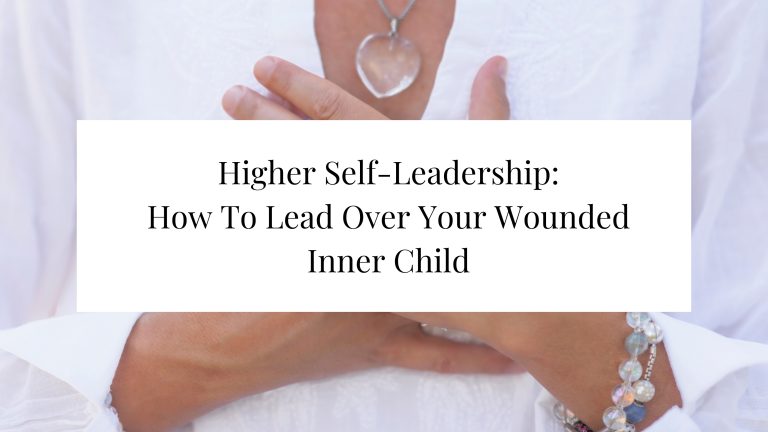How To Break Free From Relationship Self Sabotaging Patterns
In the journey of love, we may find ourselves stuck in a cycle of relationship self sabotaging behaviors. Why do we repeat the same self-destructive patterns, sabotaging the very happiness we long for? We may push away loving partners, fear vulnerability, or sabotage new relationships before they have a chance to flourish.
These behaviors can hinder our emotional growth, prevent us from experiencing true intimacy, and leave us feeling stuck in a cycle of pain and dissatisfaction. But, take heart, because recognizing and breaking free from relationship self-sabotaging patterns is possible.
In this blog, we will explore the concept of self-sabotage in relationships, unravel its psychological roots, identify common self-sabotaging behaviors, and provide effective strategies to overcome them. By gaining self-awareness, fostering healthy communication, and nurturing a positive self-image, you can embark on a journey of self-improvement and relationship healing.
Recognising Self-Sabotage in Romantic Relationships
Before we can break free from self-sabotaging patterns, it is crucial to recognize and acknowledge their presence in our relationships. Self sabotaging relationships may manifest in various ways, often leading to negative outcomes and preventing us from experiencing the love and connection we desire. By understanding the signs of self-sabotage, we can actively work towards fostering healthy and fulfilling relationships.

Understanding the Concept of Self-Sabotage
Self-sabotage in romantic relationships can be defined as a self-defeating behavior or coping mechanism that hinders the growth and happiness of a partnership. It is often rooted in unresolved trauma, attachment style, and fear of abandonment.
The first step in overcoming self-sabotage is understanding its impact on our relationships and acknowledging that we have the power to change these self-defeating behaviors.
By recognizing self-sabotage in ourselves, we gain insight into our behaviors and coping mechanisms that may be detrimental to our relationships. Creating awareness of self-sabotaging tendencies fosters relationship improvement, as we become more mindful of our actions, emotions, and communication patterns.
Understanding self-sabotage itself becomes a catalyst for positive change, empowering us to break free from self-destructive cycles and cultivate healthier connections.
Identifying Common Self-Sabotaging Behaviours
To break free from self-sabotaging behaviors, we must first identify and recognize them in our relationship dynamics. Here are some common self-sabotaging behaviors to be aware of:
- Self sabotaging a new relationship: Engaging in behaviors that push away new partners, such as playing mind games or being overly guarded.
- Problematic behaviors: Continuously engaging in behaviors that create conflict, misunderstandings, or emotional distance in relationships.
- Ignoring partner’s feelings: Disregarding or dismissing your partner’s emotions, needs, or concerns, leading to a breakdown in communication and trust.
- By understanding these behaviors, we can take proactive steps to address and change them. Awareness of self-sabotaging patterns allows us to develop healthier relationship skills and foster stronger, long-term connections with our partners.

“Do I Sabotage Relationships or Have I Just Lost Interest?”
Self-sabotaging behavior in relationships involves creating problems where none exist due to fear or self-esteem issues. On the other hand, losing interest means genuinely feeling disconnected. Reflect on your actions and emotions to differentiate between sabotaging patterns and a genuine lack of interest.
Unravelling the Psychological Roots of Self-Sabotage
Self-sabotaging behaviors in relationships often have deep psychological roots that are important to unravel. Unresolved trauma, attachment style, and fear of abandonment play significant roles in perpetuating self-sabotage. By exploring and understanding these psychological roots, we can gain insights into our behaviors and actively work towards breaking free from self-sabotaging patterns.
The Role of Past Trauma
Unresolved trauma from past relationships or childhood experiences can significantly influence our current relationship behaviors. Fear of abandonment, for example, can create a constant sense of insecurity that leads to self-sabotaging behaviors, such as pushing away a partner who is trying to get close.
Addressing past traumas through therapy or self-reflection is essential to break free from self-sabotaging patterns.
Understanding the role of mental health in self-sabotaging behaviors is also crucial. Issues like anxiety, depression, or low self-esteem can contribute to a negative self-image, making it difficult to trust in a healthy relationship.
Seeking professional help and prioritizing mental health can pave the way for healing and prevent self-sabotaging tendencies from sabotaging your relationships.

The Influence of Childhood Experiences
Our childhood experiences, especially our relationships with caregivers, have a profound impact on our adult behaviors in relationships.
Our attachment style, which is developed in early childhood, influences how we perceive and navigate relationships as adults. Insecure attachment styles, such as anxious attachment or avoidant attachment, can contribute to self-sabotaging behaviors.
By recognizing the influence of childhood experiences, we can begin to heal from any unresolved issues that may be driving our self-destructive behaviors. Through self-reflection, therapy, and self-compassion, we can work on addressing these influences and building healthier relationship patterns.

The Impact of Fear and Insecurity
Fear and insecurity are powerful emotions that can fuel self-sabotaging behaviors in relationships. Insecurity about oneself or fear of abandonment can lead to behaviors such as jealousy, clinginess, or pushing away a loving partner.
Understanding the impact of fear and insecurity on our relationships is essential in breaking free from self-sabotaging patterns.
By recognizing and addressing these emotions, we can learn to cultivate self-compassion, improve our self-worth, and build trust. Overcoming fear and insecurity requires a courageous journey of self-reflection, self-improvement, and vulnerability. It is through this process that we can create the foundation for healthy, fulfilling relationships.
Signs that Indicate You’re Self-Sabotaging Your Relationship
To break free from self-sabotage, we need to first identify the signs that indicate we may be sabotaging our relationships. By recognizing these signs, we can take proactive steps to address our behaviors, work towards healthy relationship dynamics, and foster personal growth.
Trust Issues, Doubts and Jealousy
Trust issues, doubts, and jealousy are common indicators of self-sabotaging behaviors in relationships. When trust is lacking, we may find ourselves engaging in behaviors that undermine the stability and intimacy of our partnerships.
Overcoming trust issues and addressing doubts and jealousy requires open communication, consistent actions, and a willingness to confront our own insecurities.

Excessive Criticism and Negativity
Excessive criticism and negativity can poison relationships and hinder our own personal growth. When we constantly focus on the negatives and engage in critical behaviors, we create a toxic environment that erodes trust, intimacy, and connection.
Breaking free from self-sabotaging behaviors requires a shift in mindset, fostering a more positive outlook, and embracing constructive communication.
Avoidance and Emotional Withdrawal
Avoidance and emotional withdrawal are self-sabotaging behaviors that can lead to distance and disconnection in relationships. By avoiding difficult conversations, suppressing emotions, or withdrawing emotionally, we hinder the opportunity for vulnerability, intimacy, and growth.
Learning to identify and address these avoidance patterns is crucial in breaking free from self-sabotaging behaviors.

Gaslighting and Manipulation
Gaslighting and manipulation are particularly damaging self-sabotaging behaviors that erode trust, undermine communication, and create a toxic relationship dynamic. By manipulating facts, emotions, or perceptions, we not only harm our partner, but we also sabotage our own emotional well-being.
Breaking free from gaslighting and manipulation requires self-reflection, empathy, and a commitment to open, honest, and healthy communication.
Exploring the Repercussions of Self-Sabotage in Relationships
Before we can effectively overcome self-sabotage, it’s important to understand the repercussions of engaging in self-destructive patterns in romantic relationships. The emotional toll and strain it places on both individuals can be significant, hindering happiness, trust, and the potential for a deep connection.
The Emotional Toll of Self-Sabotage
Self-sabotaging behaviors in relationships often result in negative emotions, such as fear, insecurity, loneliness, and resentment. These emotions take a toll on our mental health, well-being, and overall relationship satisfaction.
By releasing yourself from your self-sabotage, you open the door to healthier emotions and a more positive relationship experience.
The Strain on Relationships
Engaging in self-sabotaging behaviors strains relationships, creating tension, misunderstandings, and conflicts. By sabotaging a healthy relationship, we risk losing a strong foundation of love, trust, and intimacy.
Overcoming self-sabotage allows us to focus on building a strong, lasting partnership filled with love, understanding, and support.

Steps to Overcome Self-Sabotaging Tendencies in Relationships
Now that we understand the negative impact of self-sabotage in relationships, it’s time to take steps towards overcoming these self-destructive tendencies.
By acknowledging the issue, identifying triggers and patterns, taking responsibility for our actions, and seeking professional help, we can pave the way for personal growth, healthier relationships, and a brighter future.
Acknowledging the Issue
The first step in overcoming self-sabotaging tendencies in relationships is acknowledging their existence. This self-awareness allows us to take ownership of our behaviors, emotions, and patterns, and paves the way for positive change.
By recognizing the presence of self-sabotage, we open ourselves up to the possibility of growth, healing, and transformation.
Identifying Triggers and Patterns
Identifying the triggers and patterns that lead us to engage in self-sabotaging behaviors is essential in breaking free from this destructive cycle. Through self-reflection, therapy, or journaling, we can gain insights into the underlying causes of our self-sabotage.
By understanding these triggers, we can take proactive steps to avoid or address them, making way for healthier relationship patterns.

Taking Responsibility for Our Actions
Taking responsibility for our actions is a crucial step in overcoming self-sabotaging behaviors. By recognizing and owning up to the role we play in our relationship challenges, we can begin to make positive changes.
This newfound accountability empowers us to communicate openly, address conflicts, and foster personal growth, leading to healthier and more fulfilling relationships.
Seeking Professional Help
In some cases, seeking professional help may be necessary to overcome deep-rooted self-sabotaging tendencies. Therapy provides a safe and supportive space to explore past traumas, address unresolved issues, and develop healthy coping mechanisms.
Professional guidance in the form of counseling or coaching can equip us with the tools needed to break free from self-sabotaging behaviors, harness the power of our subconscious mind, and cultivate strong, healthy relationships.

Effective Strategies to Break Free from Self-Sabotage
Now that we have identified self-sabotaging behaviors and steps to overcome them, let’s explore some effective strategies to break free from self-sabotage and build healthy, fulfilling relationships.
Practicing Mindfulness and Self-Awareness
One of the most powerful tools in overcoming self-sabotage is practicing mindfulness and self-awareness. By staying present in the moment, observing our thoughts, emotions, and behaviors without judgment, we can identify self-sabotaging tendencies and redirect our energies in a more positive direction.
Cultivating self-awareness allows us to release ourselves from negative patterns, make conscious choices, and foster healthier relationship dynamics.
We can use tools such as meditation and journaling to practice each day. If you have never meditated before, or struggling to implement it into your daily routine, I have some tips on how you can bring meditation into your life to practice mindfulness and self-awareness:
Developing Healthy Communication Habits
Developing healthy communication habits is vital in breaking free from self-sabotaging behaviors and nurturing strong, healthy relationships. Here are some strategies to help you foster open, honest, and effective communication:
- Practice active listening: Truly listen to your partner’s perspective without interrupting or formulating a response.
- Cultivate empathy and compassion: Seek to understand your partner’s emotions, experiences, and needs with kindness and empathy.
- Use “I” statements: Express your feelings and needs using “I” statements, focusing on your emotions rather than blaming or criticizing your partner.
- Establish boundaries: Clearly communicate your boundaries and needs in the relationship to ensure mutual respect and emotional safety.
- Regularly check in and discuss relationship issues: Make time for open and honest conversations about the relationship, addressing any concerns or challenges that arise.
Fostering a Positive Self-Image
Fostering a positive self-image is crucial in breaking free from self-sabotaging behaviors and embracing healthy relationships. Here are some steps to help you cultivate a positive self-image:
- Cultivate self-worth and self-acceptance: Practice self-compassion, acknowledging your worthiness of love and healthy relationships.
- Challenge negative self-perceptions: Identify and challenge negative self-beliefs by focusing on your strengths, accomplishments, and positive qualities.
- Practice self-care: Prioritize self-care activities that nourish your mind, body, and soul, enhancing your self-esteem and well-being.
- Surround yourself with positive influences: Surround yourself with supportive individuals who uplift and encourage your growth and self-worth.
- Engage in activities that reinforce self-esteem: Explore hobbies, passions, and activities that help you build a strong sense of self and reinforce a positive self-image.

Nurturing a Healthy Relationship Post Self-Sabotage
Breaking free from self-sabotaging tendencies is the first step towards a healthy relationship. However, it’s essential to continue nurturing and strengthening your relationship to sustain the positive changes you’ve made.
Rebuilding Trust and Security
Rebuilding trust and security in a relationship after self-sabotage requires open communication, consistency, and vulnerability. Here are some strategies to help you rebuild trust and security:
- Communicate openly and honestly: Share your feelings, concerns, and intentions with your partner, fostering a safe space for open communication.
- Demonstrate reliability and accountability: Consistently follow through on your commitments, showing your partner that they can trust in your words and actions.
- Engage in trust-building activities: Participate in trust-building exercises, such as couples’ therapy or relationship workshops, to strengthen trust and security.
- Acknowledge past mistakes: Take responsibility for your past self-sabotaging behaviors, apologize, and commit to positive changes moving forward.
- Seek professional guidance, if needed: If rebuilding trust proves challenging, consider seeking professional help to navigate this healing process together.

Sustaining the Change and Preventing Relapse
Sustaining positive changes and preventing relapse into self-sabotaging behaviors are vital in maintaining a healthy relationship. Here are some strategies to help you sustain the change:
- Regularly assess and reflect: Reflect on your progress in maintaining healthier behaviors, communication, and relationship patterns.
- Establish a support system: Surround yourself with a support system of trusted friends, family, or a support group who can offer encouragement, guidance, and accountability.
- Develop resilience skills: Learn to navigate setbacks and challenges effectively, developing resilience skills that help you overcome obstacles on your journey.
- Celebrate your growth: Celebrate your personal growth, small achievements, and positive changes, acknowledging your progress and reinforcing your commitment to a healthy relationship.
- Stay committed to self-improvement: Continue prioritizing self-improvement, personal growth, and self-care, nurturing your well-being and relationship in the long term.

Are You Ready to Embark on a Journey of Self-Improvement and Relationship Healing?
Embarking on a journey of self-improvement and relationship healing requires courage, vulnerability, and a deep commitment to personal growth. It’s a transformative process that can lead to a life filled with love, authenticity, and healthy connections.
If you’re ready to break free from self-sabotaging patterns, open your heart to the possibilities of healthy relationships, and invest in your emotional well-being, then now is the time to take the first step:
The Empowered Woman Program
Rooted in building Self-Leadership, you will develop the profound ability to understand yourself and curate your dream life, beyond past wounds and protective mechanisms.
Guided by a heart-centered, no-nonsense approach, the program involves pragmatic coaching, heart-centered therapy, skill-building, and self-directed learning.





